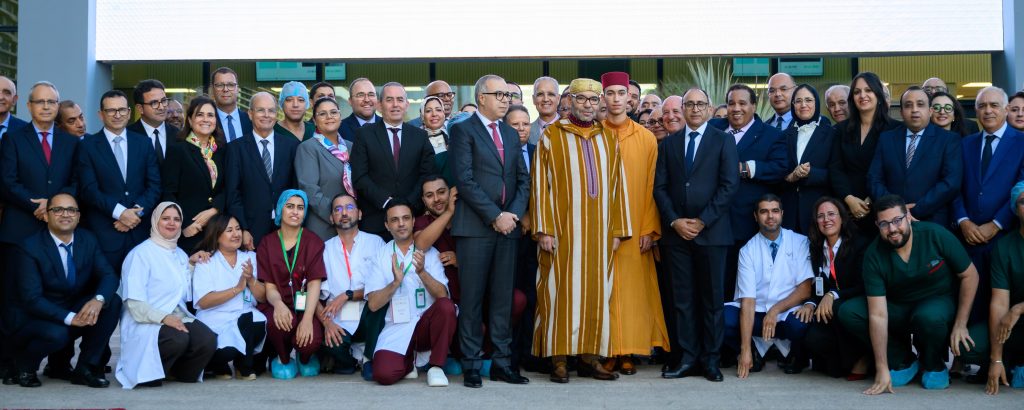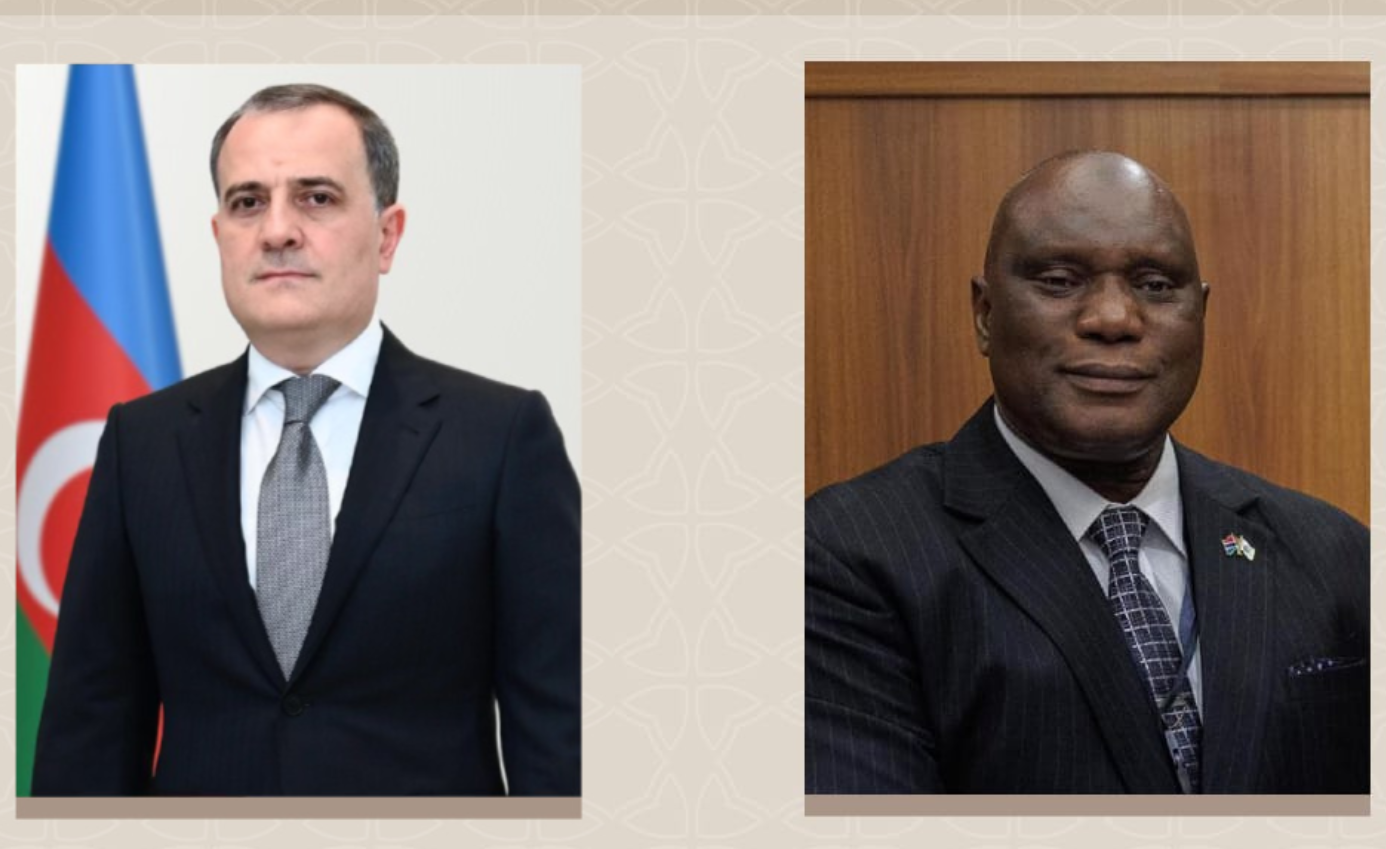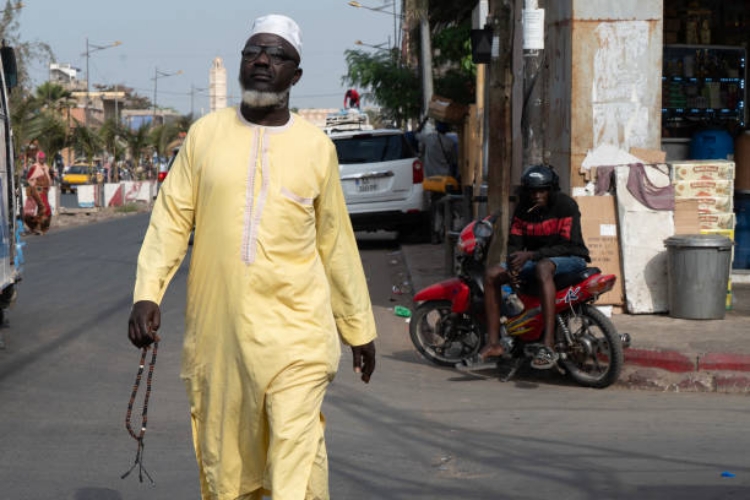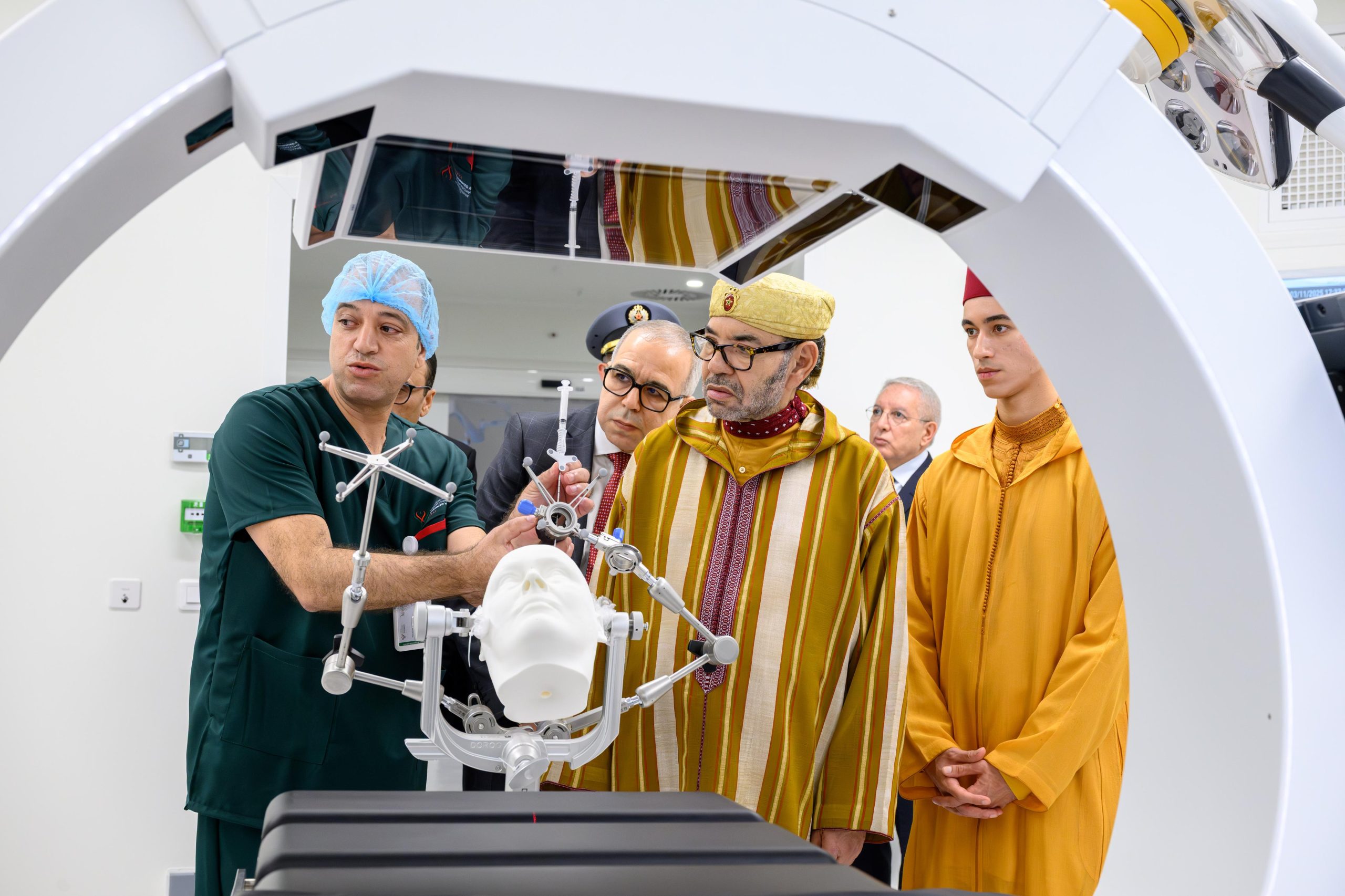Gambiaj.com – (Rabat, Morocco) – His Majesty King Mohammed VI, accompanied by His Royal Highness Crown Prince Moulay El Hassan, inaugurated the Mohammed VI International University Hospital Complex in Rabat on Monday, a world-class facility designed to deliver high-quality healthcare services accessible to all Moroccans while fostering excellence in medical education and research.
On this occasion, the King also gave His High Instructions for the opening of the Mohammed VI University Hospital Center in Agadir, a state-of-the-art medical hub set to transform healthcare delivery and medical training in the Souss-Massa region.
Built by the Mohammed VI Foundation for Science and Health, the Rabat complex represents a new generation of modern, intelligent healthcare infrastructure, a reflection of the king’s enlightened vision and enduring commitment to citizens’ well-being.
The project aims to ensure equitable access to next-generation health services supported by cutting-edge medical technologies and a strong academic and research foundation.
It also underscores the King’s focus on strengthening Morocco’s human capital in healthcare and building highly qualified professionals who meet global standards in clinical care, prevention, and health governance.
A New Model in Patient-Centered Medical Care
Occupying 280,000 square meters, the Rabat complex comprises two integrated entities, notably, the Mohammed VI International University Hospital of Rabat (190,000 m²) and the Mohammed VI University of Science and Health of Rabat (90,000 m²).
The hospital, with an initial capacity of 600 beds expandable to 1,000, includes more than 30 centers of excellence covering advanced specialties such as robotic surgery, neurosurgery, interventional cardiology, oncology, radiotherapy, and precision medical imaging.
It is equipped with 24 modern operating theaters, 19 of them located within a 3,400 m² integrated surgical block, featuring hybrid and robotic rooms, alongside 143 intensive care beds, including 30 neonatal incubators.
The facility houses state-of-the-art equipment, including Africa’s first PET-MRI scanner, a 3 Tesla Omega MRI system, a radiotherapy unit, a fully robotic hospital pharmacy, and a medical simulation center.

Among its major innovations are a burn treatment unit, Morocco’s only hyperbaric and hypobaric oxygen therapy service, and Africa’s first fully automated laboratory platform.
It also hosts Morocco’s first digital pathology lab, ensuring high-precision diagnostics and continuous patient monitoring.
Placing patients at the center of its mission, the hospital offers integrated and personalized care pathways focused on comfort, safety, and excellence. It also serves as a premier learning environment for students of the Mohammed VI University of Science and Health.
The university, a leading academic institution, strengthens one of the key pillars of Morocco’s healthcare reform, the development of skilled human resources.
It features 15 auditoriums (4,000 seats), 72 classrooms, and 217 practical laboratories, with a total capacity of 8,000 students across its various faculties and schools in medicine, dentistry, pharmacy, public health, biomedical engineering, and nursing sciences.
Committed to sustainability, the complex has earned an “Excellent” HQE certification and incorporates 8,800 m² of photovoltaic panels, covering over 10% of its energy needs while cutting carbon emissions by 40%.
Mohammed VI University Hospital of Agadir: A Symbol of Modernity
The Mohammed VI University Hospital Center of Agadir, built on a 30-hectare site with 127,000 m² of covered area and an investment of 3.1 billion dirhams, has a capacity of 867 beds. It comprises several specialized departments, including mother-and-child, surgery, radiology, and cardiology, as well as a central operating block with 19 theaters, emergency and burn units, laboratories, and a robotic central pharmacy.
It is the first hospital in Africa to integrate high-precision 3D robotic surgery, marking a major advancement in medical practice. The cardiology department includes two catheterization rooms and intensive care units built to international standards.
With a comprehensive sterilization center and robotic pharmacy, the facility guarantees maximum patient safety and the highest quality of care.
Serving nearly three million people, the Agadir University Hospital will strengthen healthcare access in the Souss-Massa region, reduce the need for travel to other cities for advanced treatment, create thousands of direct and indirect jobs, and stimulate both regional and national socio-economic development.










